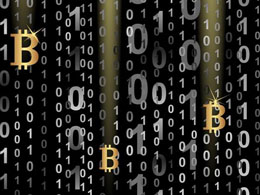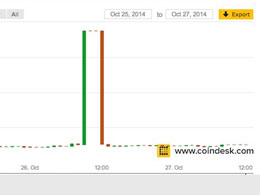
New Bitcoin Caching Features Could Improve Block Verification
A new way of verifying blocks on the Bitcoin blockchain could make the digital currency more efficient. In the original version of Bitcoin, when nodes received a block of transactions, they would validate each transaction set. Most likely, these transactions were already validated before, when they were relayed across the network. However, this previous....
Related News
The popular privacy coin Monero (XMR) successfully implemented a non-contentious hard fork on August 13 at a block height of 2,688,888, strengthening its security and privacy features even further. With this upgrade, Bulletproofs+ algorithm was introduced, reducing typical transaction sizes by 5%-7% and improving verification performance by 5%-7%. Additionally, a total of 16 cosigners are […]
Bitcoin was designed to be a decentralized and trustless payment network - with the power to do this provided by the block chain and its ability to publicly confirm the digital currency's digital transactions. Rather contentiously, however, as the bitcoin economy expands, more and more transactions are being carried out off the block chain. Such transactions are tracked on private databases instead of the block chain, and cannot be publicly tracked. There are pros and cons to both systems. So, which are better? Off-block chain or on-block chain transactions? Visible payments. Legitimate....
ConsenSys, a blockchain technology company, and Ethereum have developed BTC Relay, an Ethereum contract that allows Ethereum users to pay with bitcoin. Servicing as a bridge between Ethereum and bitcoin, BTC Relay is a tool for developers who want to verify bitcoin transactions for Ethereum and smart contract applications. Community members, called Relayers, provide BTC Relay with new bitcoin block headers generated by bitcoin miners. Ethereum app developers can make API calls to BTC Relay from smart contracts to verify bitcoin network activities. Anyone can join the Ethereum network and....
LakeBTC has confirmed it has patched its system to stop this problem from happening again. UPDATE (28th October, 10:00 GMT): Information about a second data error lasting seven minutes on 27th October was added. The CoinDesk BPI spiked this weekend due to an error in the data reported by the LakeBTC exchange. From 09:18 UTC to 12:24 UTC on 26th October, LakeBTC's price ticker reported a bid value of $1,000. Immediately prior to this, the value was $351.34. A LakeBTC data caching issue caused its price ticker to show an erroneous, high, bid value. "We thought it was the trades but the trade....
Canadian digital currency exchange Vault of Satoshi will announce a plethora of new features today, including more verification options, coin-to-coin trading, and support for several new coins. The exchange, which opened its doors in October, has eased its verification procedures, said founder Mike Curry. It previously had two verification states for customers: verified and unverified. As of today, it offers four. The unverified status (which essentially stops you doing anything significant on the site) still exists. But requirements for its basic level of verification have dropped from....





